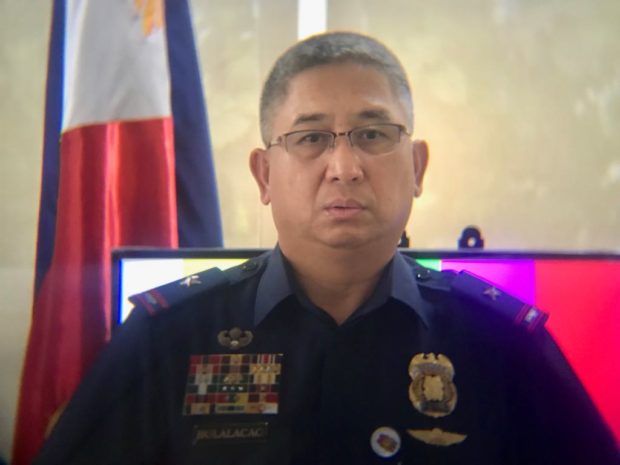PNP’s new subpoena power seen as as ‘green light’ for more EJKs
The Philippine National Police said a newly signed law giving its chief the power to issue subpoenas would add more teeth in fighting crime, but concerned lawmakers and a prominent human rights lawyer worried that more than criminals could suffer from its bite.
PNP spokesperson Chief Supt. John Bulalacao said the police would closely guard against abuses of the subpoena power, which was also given to the chief of the Criminal Investigation and Detection Group (CIDG) and his deputy.
The quasi-judicial authority was a welcome development as it “will add more teeth to our mandate to enforce the law and find solutions to criminal incidents,” Bulalacao said in a statement on Saturday.
Republic Act No. 10973, signed by President Rodrigo Duterte on March 1, amended the Local Government Code to give the PNP chief and the CIDG director and his deputy “the power to administer oath, issue subpoena and subpoena duces tecum in relation to its investigation.”
A subpoena orders a person to testify before the agency that issued it and a subpoena duces tecum directs the presentation of specific documents or items.
Article continues after this advertisementAnyone who does not comply is cited for indirect contempt.
Article continues after this advertisement“With all the safeguards and built-in measures to ensure transparency and accountability in the police service, we want to assure the public that any attempt to abuse or misuse this power will be promptly checked and offenders will be dealt with accordingly,” he said.
Human rights champion and former Sen. Rene Saguisag asked how the new law would affect Republic Act No. 7438, which defines the rights of persons arrested, detained or under custodial investigation as well as the duties of the arresting, investigating and custodial authorities.
In remarks shared on social media on Saturday, he cited one of the 1992 law’s provisions which he said criminalized “even the mere act of ‘inviting’ a suspect.”
“Is there no human rights advocate in Congress and Malacañang today who remembers the Inquisition and takes seriously the basic human and constitutional right not to speak? The right to remain silent is sacred,” he said.
Members of the Makabayan bloc in the House of Representatives see the new law as a “green light to more extrajudicial killings (EJKs), arbitrary arrests and trumped-up charges against dissenters and [the] opposition.”
Emmi de Jesus and Arlene Brosas of Gabriela, which is part of Makabayan, said giving subpoena powers to the police in tandem with the justice department’s “arbitrary” list of more than 600 alleged terrorists would be “anomalous and pernicious, given the bloody track record of the PNP.”
“We stand firm that the PNP should have no quasi-judicial or prosecutorial investigative powers, especially with its undisputed record of corruption, arrogance, human rights violations and its fondness for legal shortcuts,” De Jesus and Brosas said in a statement.
